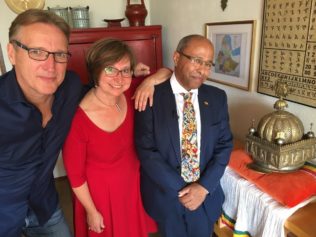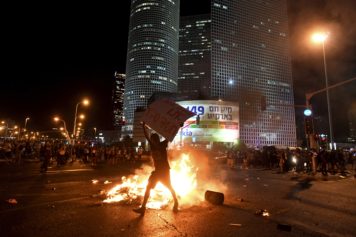Addis Ababa – As the Permanent Representatives Committee (PRC) meeting got underway in Ethiopia on Monday, ahead of the 19th African Union Summit, commissioners were looking set to emerge with radical proposals aimed at addressing the political instability in Mali and the soured relations between Sudan and South Sudan.
The United Nations warned this week that the union needed to move with speed and called for the warring factions in the Sudanese conflict to return to the negotiation table and avert the return to full-blown civil war.
The second round of the AU-led negotiations between the two countries was adjourned on June 28 after a week of marathon talks in Addis Ababa. The delegations could not agree on any of the pressing issues on the agenda, such as security around border zones and an end to the conflicts.
South Sudan has reportedly offered Sudan a direct negotiation without the involvement of the AU that would lead to a peace agreement ahead of the UN Security Council imposed deadline of August 2.
With African leaders attending the summit later this week expected to be overt on the need for a stronger continental integration and development, the Sudan question is expected to top the agenda.
The event, which was originally scheduled to take place in Malawi, will also elect a new chairperson of the AU Commission, a position being contested by South Africa’s Home Affairs Minister Nkosazana Dlamini-Zuma and incumbent Jean Ping of Gabon.
Speaking at the opening of the PRC meeting, AU Commission deputy chair Erastus Mwencha underlined the importance of political stability on the continent, saying developments in the Sudan could undermine the work of the AU to bring about peace in the region so far.
South Sudan seceded from Sudan in July, and although Khartoum agreed to its independence, relations have continued to deteriorate as a result of unresolved disputes over oil and border issues.
Mwencha insisted that the tensions, which had at some point led to a military confrontation between the two countries, could only be solved through negotiation and “not war”.
“We take comfort in the recent negotiations facilitated by the AU and the ongoing efforts to facilitate the return to normalcy should continue,” Mwencha said.
He said in view of the AU goals to resolve the political instability in Mali and conflict-stricken regions including the horn of Africa, it was important that the AU summit encouraged a speedy resolution to the emerging Sudanese crisis.
“It is therefore imperative that we redouble our efforts to make peace on our continent. Key in this respect is for economic growth and development to accompany peace and security democracy and governance.”
The Kenyan national urged the PRC, which is considered an ‘engine’ of the AU Commission, to be clear in its deliberations that will go to reports for adoption by the Executive Council consisting of ministers.
The ministers will also consider for adoption a proposed budget of US$278 million, which reflects a 1.5 percent increase on the 2012 estimates.
The chairperson of the PRC and Benin’s ambassador Ferdinand Montcho said more than US$117 million will go towards operations, with member states allocated $122.87 million.
It is hoped that the union will source more funding in the coming year to allow for the fast tracking of growth in preparation for the mooted free trade area by 2017.
President Jacob Zuma has said a single free trade area would help neighbors work together to alleviate poverty and build industrial capacity.
In the last six months, work had been done to finalize the road map towards the strategy.
But Montcho cautioned on Monday that as countries prepared the foundation for the continental free trade area, “it is important to take into account the implications of the multilateral and regional trade arrangements, notably the stalled World Trade Organization”.
There were also economic partnerships that still needed to be finalized by some countries.
The AU’s approach towards realizing the plan would be to first finalize the tripartite agreement among the East African Community, the Common Market for Eastern and Southern Africa, and the Southern African Development Community by 2014.
The second step would focus on urging other trade blocs on the continent – the Economic Community of West African States, the Economic Community of Central African States, the Arab Maghreb Union, and the Community of Sahel-Saharan States – to follow this example by reaching parallel agreements between 2012 and 2014.
The creation of a single trade area would see the coming together of a combined population of approximately 700 million people and a Gross Domestic Product of US$875 billion from 26 countries.
Source: SAnews.gov.za


